Towards the end of 2021 I applied for a week’s residency at Hawkwood, as a way of trying to find some time to hit the brakes amidst the freelance-musician-frenzy and work on my own writings and compositions. I’d been hopping around frantically between various collaborative projects since work started to come in again post-lockdowns. I was saying yes to absolutely everything that came my way, and was of course grateful to be so busy again. But after several non-stop months I felt I needed some solitary time to take a pause and rediscover what kind of work I make when I’m on my own in a quiet place, surrounded by nature and with the headspace to learn new approaches and challenge myself.
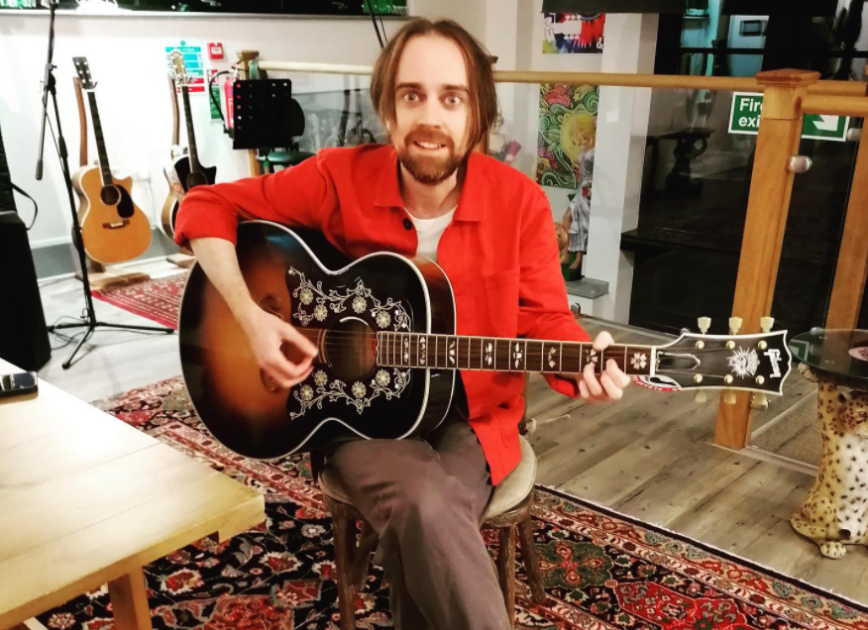
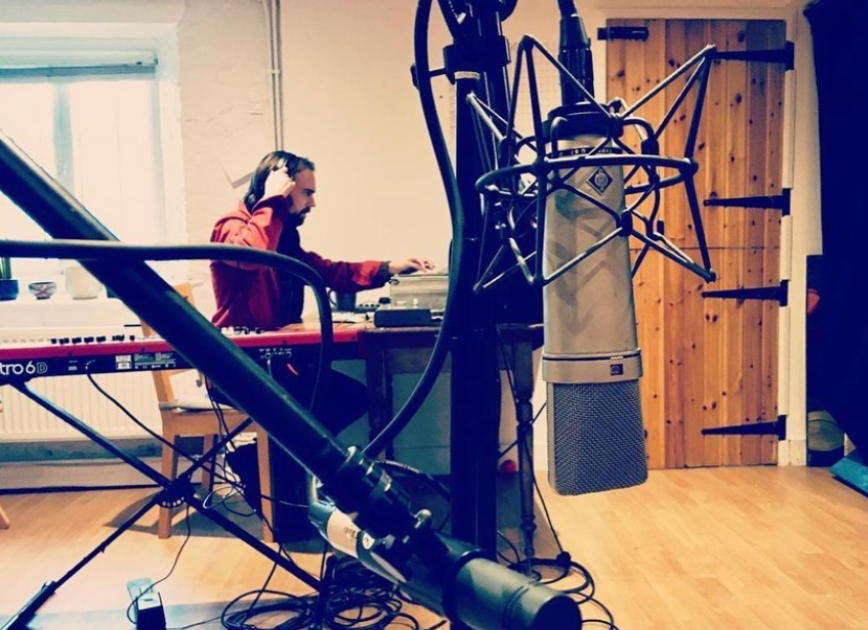
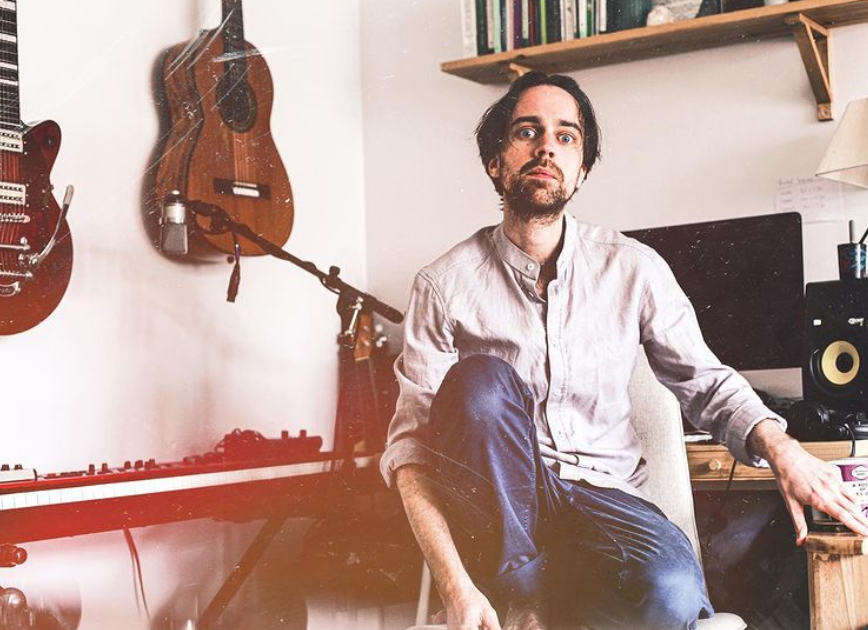
I was delighted to be welcomed to Hawkwood in January 2022, leaving London behind for a few days and settling in immediately into the beautiful Cotswold valley where the college is nestled. I brought a few microphones, a laptop, a notebook, and not much else, with the sole aim of writing and recording some new musical ideas on a beautiful grand piano. I had no cut-and-dried project goals or expectations, all I knew was that I wanted to write some songs that in some way reflected thoughts about the natural world and our responsibility to it at a time of great crisis. Not protest songs or polemics, just music that in some way captured a mood of reverence, wonder and loss. I wanted to stay present and ‘in the moment’ whilst writing, in the same way that I’d respond to what’s around me when improvising with an ensemble – if the sunlight suddenly burst into the room it would change the direction of the song, if the piano pedal creaked I’d use the sound as part of the arrangement, if my microphones picked up the sound of a builder dropping his tools next door I’d loop the sound and use it as a rhythm. I’d also go walking in the woods and hills and record various sounds on my phone, things like twigs crackling, birds singing and farm gates clanking. These sounds also became embedded in the music, forming melodies and rhythms that I would never have come up with using traditional instruments in my home studio. Being completely awake to the environment around me whilst composing meant that a sense of place became embedded deeply in the recordings I made at Hawkwood. To me they capture a powerful sense of peace in nature, but also a kind of sorrow for what’s at stake right now. I could never have made music like this at home in London with the bustle of traffic outside, or in a lifeless and windowless recording studio that’s cut off from the outside world.
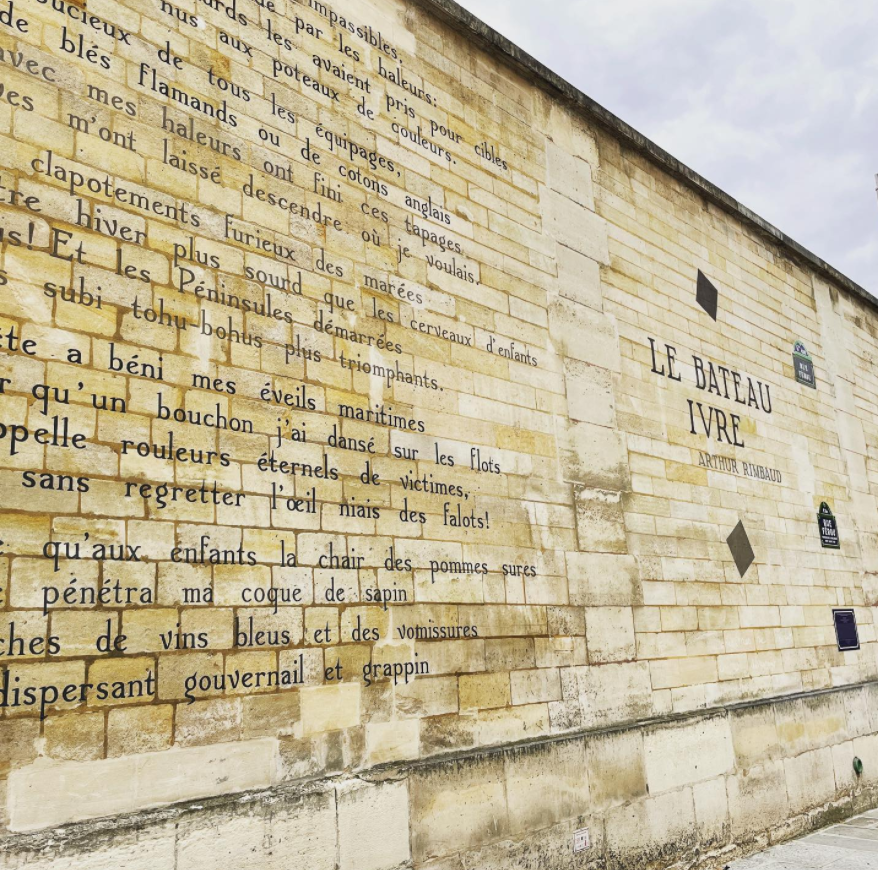
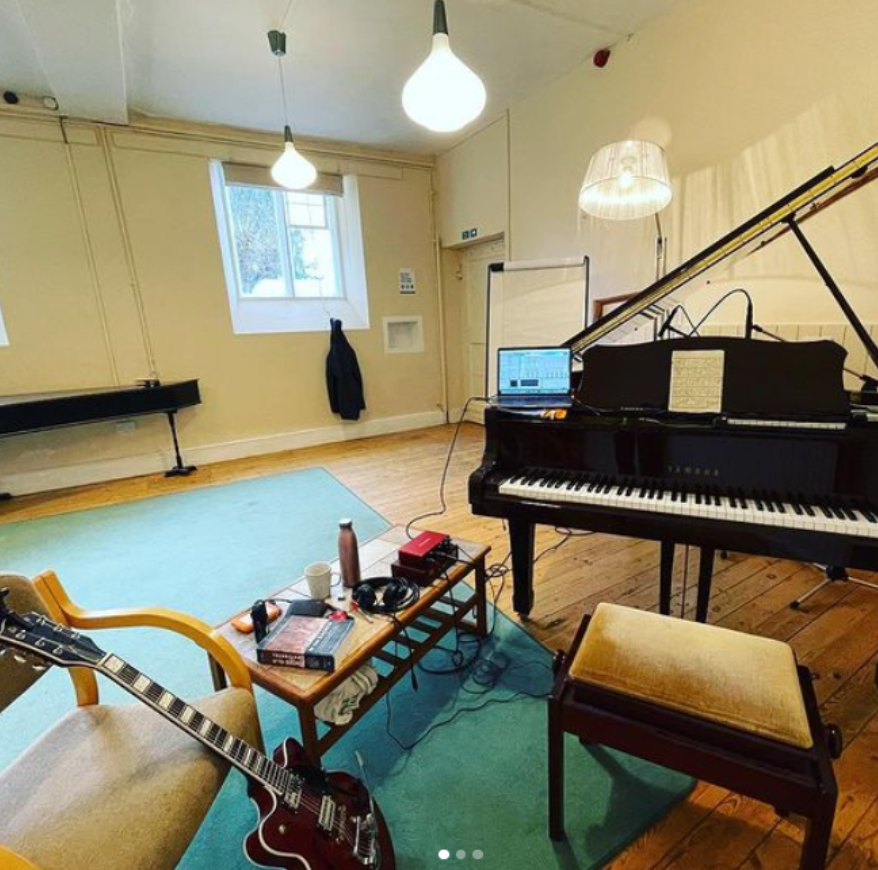

A huge bonus for me was sharing the residency week with the other artists present. Getting to spend mealtimes with string ensemble Balladeste and theatre company Spitz & Co while they all worked on developing their own projects was wonderful and immensely inspiring. One night we sat up in the old library sharing pieces of music we all loved and talking about them – all of this fed into my creative experience at Hawkwood and fed into the work, helping me unlock some inhibitions I’d recognized in my own compositions.
In addition to this I have to mention the brilliance of all the staff at Hawkwood. Everyone I met was so welcoming, warm and helpful, always on hand whenever I needed anything, but also with a fantastic understanding of how to give artists space to submerge in their work without distraction.
For me, songwriting can only happen when there is space, space to daydream and think deeply about music and challenge yourself in your own writing and perception of the world around you. Hawkwood provides artists with both the crucial headspace and physical space in which to fully immerse in their craft and develop boundary-pushing new work. I came away from that week buzzing with new ideas and with recordings that will form the basis of a new project I’m now planning to bring together later this year. I couldn’t be more grateful for my time there and to all involved for providing this massively reviving creative experience.
Full credit to John Elliott, with thanks to the DCMS & Arts Council England for their funding.

